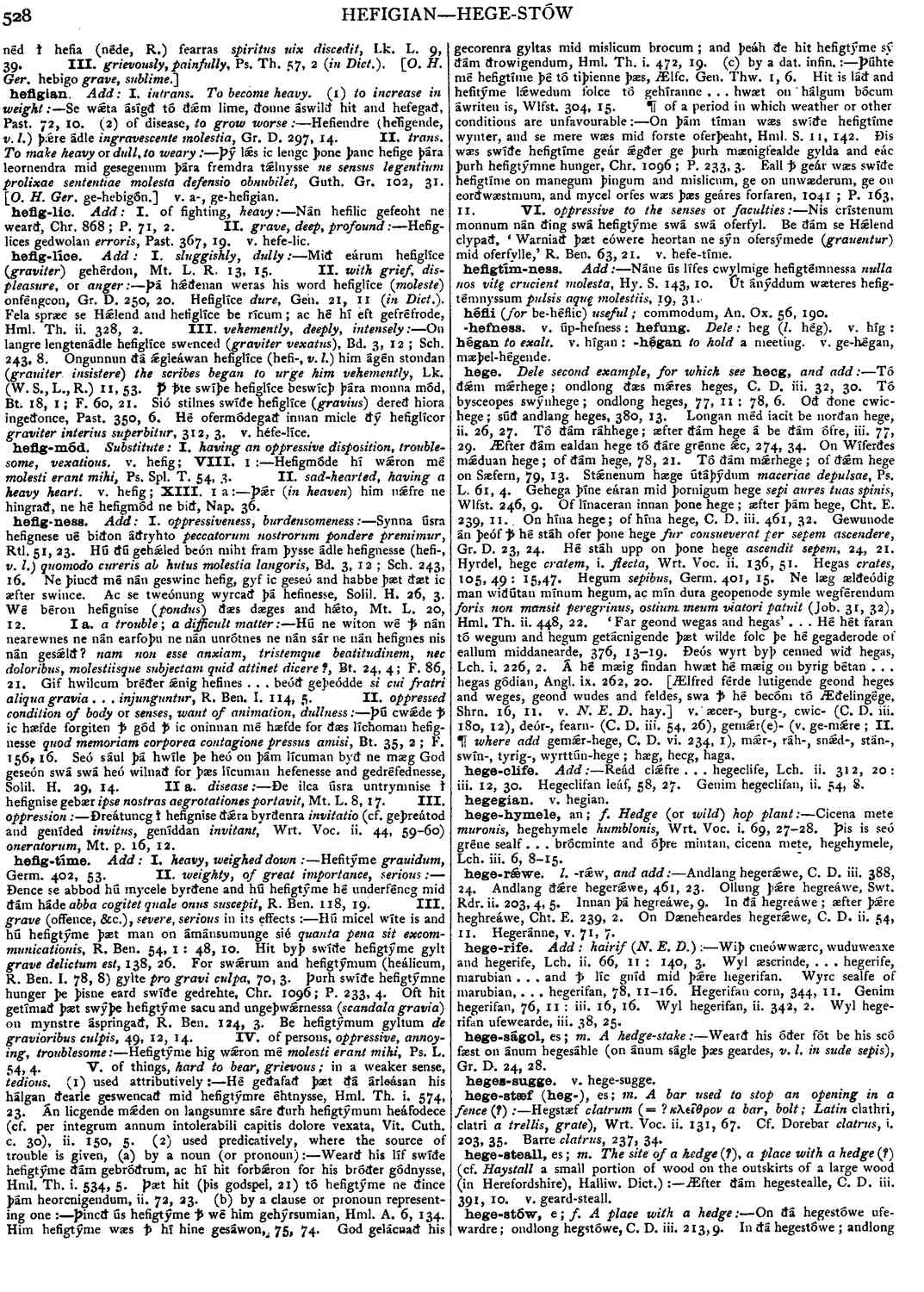hefig-ness
-
Synna usra hefignese ué biðon áðryhto
peccatorum nostrorum pondere premimur,
- Rtl. 51, 23.
-
Hú ðú gehǽled beón miht fram þysse ádle hefignesse (hefi-, v. l.)
quomodo cureris ab huius molestia langoris,
- Bd. 3, 12 ;
- Sch. 243, 16 .
-
Ne þincð mé nán geswinc hefig, gyf ic geseó and habbe þæt ðæt ic æfter swince. Ac se tweónung wyrcað þá hefinesse,
- Solil. H. 26, 3 .
-
We béron hefignise
(pondus)
ðæs dæges and hǽto,
- Mt. L. 20, 12 .
-
Hú ne witon wé ꝥ nán nearewnes ne nán earfoþu ne nán unrótnes ne nán sár ne nán hefignes nis nán gesǽlð?
nam non esse anxiam, tristemque beatitudinem, nec doloribus, molestiisque subjectam quid attinet dicere
- ?,
- Bt. 24, 4 ;
- F. 86, 21 .
-
Gif hwilcum bréðer ǽnig hefines . . . beóð geþeódde
si cui fratri aliqua gravia. . . injunguntur,
- R. Ben. I. 114, 5 .
-
Þu cwǽde ꝥ ic hæfde forgiten ꝥ gód ꝥ ic oninnan mé hæfde for ðæs lichoman hefignesse
quod memoriam corporea contagione pressus amisi,
- Bt. 35, 2 ;
- F. 156, 16 .
-
Seó sául þá hwíle þe heó on þám lícuman byð ne mæg God geseón swá swá heó wilnað for þæs lícuman hefenesse and gedréfednesse,
- Solil. H. 29, 14 .
-
Ðe ilca úsra untrymnise í hefignise gebær
ipse nostras aegrotationes portavit,
- Mt. L. 8, 17 .
-
Ðreátuncg ł hefignise ðǽra byrðenra
invitatio
(cf. geþreátod and geníded
invitus,
geníddan
invitant,
- Wrt. Voc. ii. 44, 59-60)
oneratorum,
- Mt. p. 16, 12 .
Bosworth, Joseph. “hefig-ness.” In An Anglo-Saxon Dictionary Online, edited by Thomas Northcote Toller, Christ Sean, and Ondřej Tichy. Prague: Faculty of Arts, Charles University, 2014. https://bosworthtoller.com/52148.
Checked: 1